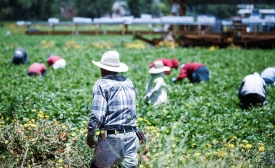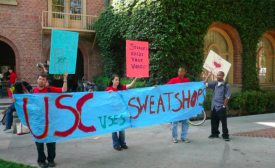labor rights

Mexican diplomat Rodrigo Márquez Lartigue describes a U.S.-Mexico initiative via the Mexican consular network.
“Human rights” can sound like an abstraction, something spoken of only at the highest levels of government. But the work governments do on human rights has consequences and can even make the difference between life and death. As we celebrate Human Rights Day on December 10, we look at how international campaigns in four human rights areas improved the lives of people around the world.
The United States government’s decision to place Uzbekistan in the lowest category of its annual human trafficking report sends a message of solidarity to the well over a million Uzbeks forced to pick the country’s cotton crop, the Cotton Campaign, of which Human Rights Watch is a member, said today.
Human trafficking and its connection to sports events have been discussed since the World Cup 2006 in Germany. Big and costly media campaigns warned of the rising problem of human trafficking of adult women in the sex industry. Since then, media and NGO campaigns became particularly visible before and around the World or European Cup, the Olympics and the Super Bowl. What can we learn from past experiences and research about this connection?
In 2008, 1.9 million Portuguese workers in the private sector were covered by collective bargaining agreements. Last year, the number was down to 300,000. Spain has eased restrictions on collective layoffs and unfair dismissal, and softened limits on extending temporary work, allowing workers to be kept on fixed-term contracts for up to four years. Ireland and Portugal have frozen the minimum wage, while Greece has cut it by nearly a fourth. This is what is known in Europe as “internal devaluation.”
Through my involvement in labor rights activism, I started organizing direct actions under the USC student-run organization, “Student Coalition Against Labor Exploitation (SCALE).” SCALE is a smaller branch of the national student labor rights movement. Our advocacy program demonstrates how university students engage in public diplomacy with factory workers worldwide. While at the same time, we advocate for the use of hard power inducements to enforce social responsibility on corporations and governments.

Through my involvement in labor rights activism, I started organizing direct actions under the USC student-run organization, “Student Coalition Against Labor Exploitation (SCALE).” SCALE is a smaller branch of the national student labor rights movement. Our advocacy program demonstrates how university students engage in public diplomacy with factory workers worldwide.







